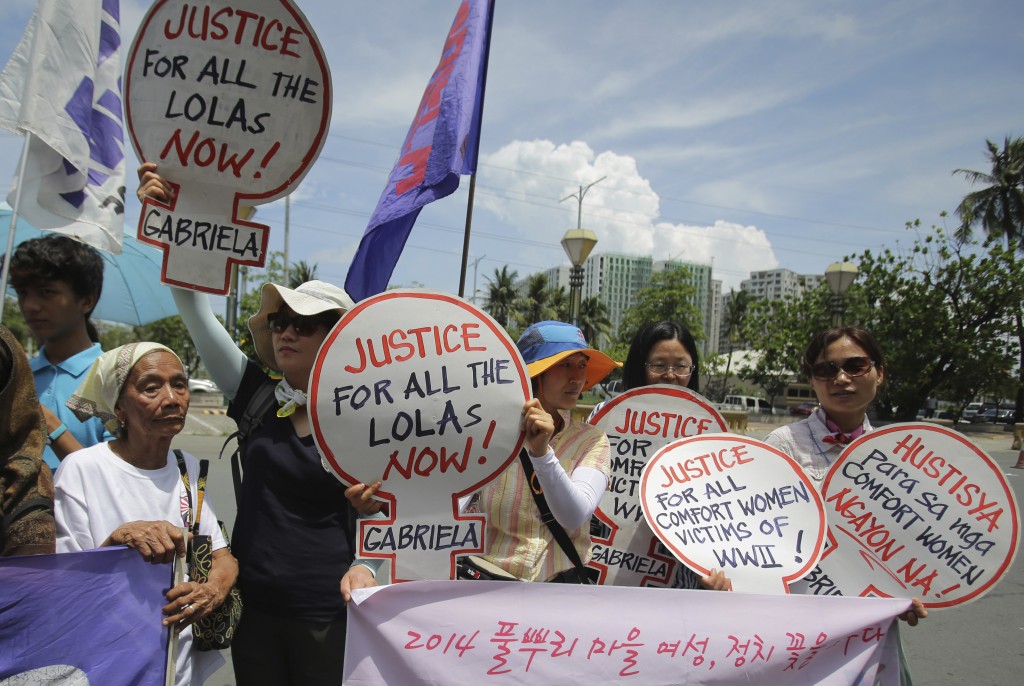PH cited for fight against modern-day slavery

Women activists join a rally in front of the Japanese Embassy in Manila, Philippines on June 25, 2014. A group of alleged Filipino “comfort women” demanded recognition following the announcement of the affirmation of the Kono statement as a result of the Japanese government investigation on the alleged World War II sexual slavery in Korea. AP
SYDNEY, Australia — A anti-slavery foundation has cited the Philippines for positive steps it has taken to fight modern-day slavery.
The Walk Free Foundation set up by Australian billionaire Andrew Forrest cited the Philippines in its 2016 Global Slavery Index. Cited with the Philippines were Croatia and Brazil.
It also praised India for making significant progress in addressing the problem.
READ: 261K Filipinos victims of modern slavery | Vatican commits to slavery-proofing its own supply chains
The report said more than 45 million men, women and children globally are trapped in modern slavery, far more than previously thought, with two-thirds in the Asia-Pacific, a study showed Tuesday.
It compiled information from 167 countries with 42,000 interviews in 53 languages to determine the prevalence of the issue and government responses.
It suggested that there were 28 percent more slaves than estimated two years ago, a revision reached through better data collection and research methods.
The report said India had the highest number of people trapped in slavery at 18.35 million, while North Korea had the highest incidence (4.37 percent of the population) and the weakest government response.
Modern slavery refers to situations of exploitation that a person cannot leave because of threats, violence, coercion, abuse of power or deception.
They may be held in debt bondage on fishing boats, against their will as domestic servants or trapped in brothels.
Some 124 countries have criminalized human trafficking in line with the UN Trafficking Protocol and 96 have developed national action plans to coordinate the government response.
However, Forrest said more robust measures were needed.
“We call on governments of the top 10 economies of the world to enact laws, at least as strong as the UK Modern Slavery Act 2015, with a budget and capability to ensure organizations are held to account for modern slavery in their supply chains, and to empower independent oversight,” he said.
“I believe in the critical role of leaders in government, business and civil society. Through our responsible use of power, strength of conviction, determination and collective will, we all can lead the world to end slavery.”
In terms of absolute numbers, Asian countries occupy the top five for people trapped in slavery. Behind India was China (3.39 million), Pakistan (2.13 million), Bangladesh (1.53 million) and Uzbekistan (1.23 million).
As a percentage of the population, Uzbekistan (3.97 percent) and Cambodia (1.65 percent) trailed North Korea, which the study said was the only nation in the world that has not explicitly criminalized any form of modern slavery.
The report also tracked actions and responses to the problem, with governments at the forefront including the United States, Australia, and a host of European nations including Britain, Portugal and Norway.
Those with the weakest action included Iran, Hong Kong and China.














